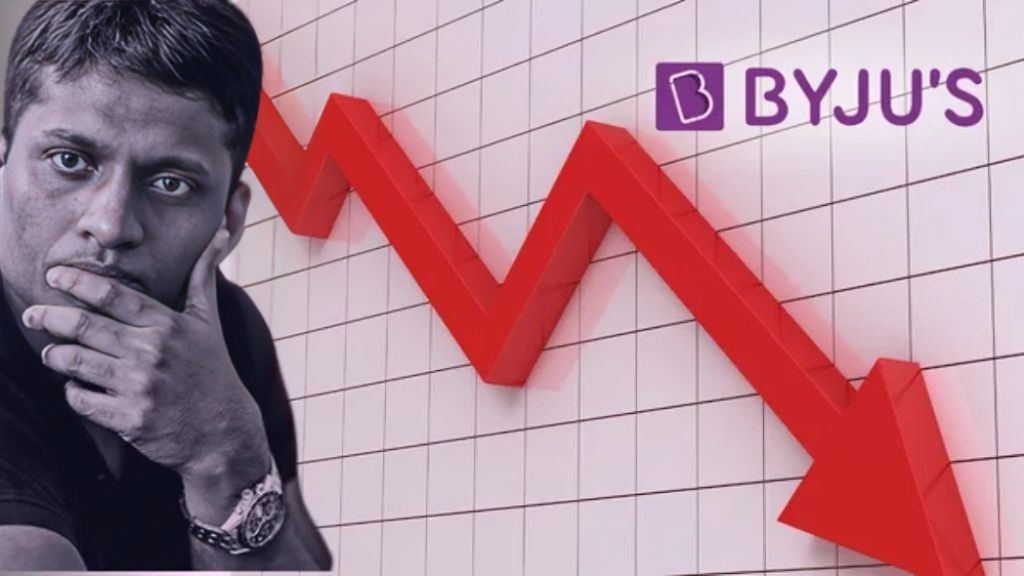| বাংলায় পড়ুন | Researchers and Reporters: Tanjil Fuad Anika Taieba |
What name immediately comes to mind when someone mentions using a mobile device to learn math?
YouTube video?
No…
Learning mathematics involves both seeing and doing. Mobile applications such as Sikho and Ten Minutes School are popular nationwide. BYJU’S is the app to discuss if we are discussing India, a neighboring country. This business once completely changed India’s edtech (education technology) market. However, a serious dilemma is currently plaguing this edtech institution. When Byju Raveendran and Divya Gokulnath founded the company in 2011, it revolutionized the Indian educational system and gave students access to a technology-based learning environment.
“BYJU’S: The Learning App” appeared in 2015 and quickly gained so much popularity that, in just three months, it achieved the remarkable goal of two million downloads. But a series of technical issues and strategic errors caused the business to fail in a matter of years, and today the once-billion-dollar corporation is on the verge of going bankrupt. The well-known business Byju’s will be the subject of our discussion today.
Success in its early stages
Byju’s initially gained recognition as an enjoyable math learning tool. Byju Raveendran, the founder of Byju’s, was aware that students will only succeed if they can generate interactive games, content, or visuals. thus it may draw in additional pupils. The key to Byju’s success was the combination of video learning and gamification. To support students without internet access, the institute recently began providing offline instruction and educational tablet PCs.
The promotion of Byju’s began to gain traction due to these tactics. WhiteHat Junior, a provider of programming courses, and Akash Educational Services, a seasoned and established competitive exam preparation organization, were acquired by Byju’s. By doing so, pupils are exposed to a variety of educational systems outside of the classroom. Byju’s started supporting the Indian cricket team in 2019 and went on to represent the country in international competitions such as the FIFA World Cup and the ICC in the following years. Byju’s established itself as a brand in India and around the world because of these efforts.

Byju’s became the sponsor of the Indian cricket team in 2019, opening a new horizon for sponsorship. | Photo: Collected.
Overstretching and some incorrect inferences
Byju’s bought about 19 businesses between 2017 and 2021, requiring an investment of over $3 billion. However, Byju’s has struggled to effectively organize these acquisitions. The organization’s technical expenses went up as a result, and some operations failed. Newly acquired businesses typically have more employees, but there is less internal coordination. In addition, the rate of customer retention keeps declining. Income thus begins to decline, but Byju’s keeps raising costs without keeping the income-expenditure balance in this instance. This leads to a massive financial disaster.
Trust among investors and the credit crisis
The company was under strain when Byju’s began to take on a lot of debt in order to support its expansion. The business missed payments on the loan in 2023. Investors are deeply alarmed by this. As a result, Byju’s also became embroiled in several court cases involving different banks. Additionally, it becomes more challenging to raise new loans or financing as investor confidence declines. The corporation attempted, but was unsuccessful, to control operating costs through a series of layoffs.
Problems with an ethical marketing strategy
Byjus’ marketing approach, particularly their aggressive sales practices, started to draw a lot of criticism. A weekly goal of 100,000 customers was set for the staff; if this goal wasn’t met, layoffs were decided. Therefore, the employees would strive to achieve their goals at all costs. It has been discovered that one employee paid 15,000 rupees to purchase Byju’s course and reach his goal. There have even been cases where parents have made their children purchase courses.
Competition for these reasonably priced educational solutions has also increased as a result of the entry of new edtech businesses into the Indian market. As consumer interest in Byjus’ products started to decline, the company found it challenging to maintain its competitiveness. At the same time, the company’s management and marketing strategy is hampered by pressure from government regulations and regulatory bodies.
In the meantime, Arjun Mohan, the CEO of Byju’s, resigned. This leads to an ongoing leadership crisis. Byju’s failed to win back the trust of investors, despite subsequent attempts by the company to restructure the management committee and boost staff morale.

Byju’s and ethical complexities in marketing strategies – The role of ethics in business decisions. | Photo: Collected.
Recovery prospects and the future of Byju’s
Byju’s continues to work toward recovery despite being a company beset by financial and policy issues. Byjus’ example can serve as a lesson to other startups or enterprises about the significance of cost control and strong management practices throughout expansion. In addition to being the tale of an edtech business, the rise and fall of Byju’s serves as a lesson in sustainable management and a guide to avoiding strategic blunders in the startup sector.





























Comments